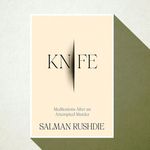
Parul Sehgal is a book critic at the New York Times. She’s known for her clear-eyed, razor-sharp reviews, such as her recent dissection of the controversial novel American Dirt. Before joining the Times in 2012, she was books editor for NPR. Sehgal has lived in India, Hungary, the Philippines, and Canada and now resides in Fort Greene with her daughter and husband. Here’s how she gets it done.
On a typical morning:
I usually go to bed around 3 or 4 a.m. I have a 3-year-old daughter, so I need those unbroken hours to trick myself into thinking and reading. My husband handles the morning with my daughter. I emerge after about five hours of sleep, like a character stumbling onstage in a Eugene O’Neill play. There are simmering resentments and tantrums and dance parties. I don’t really eat breakfast; I nibble. I get people out the door, walk the dog, and then, on my best days, I’m able to plunge back into whatever I was reading or writing the night before. A few days a week, I take a two-hour walk to
work at the Times Building from Brooklyn. I love looking at people, looking at what they’re wearing.
On her reviewing process:
Every week, I have a different book to review, and I typically read books I’m reviewing in one sitting, hence my mad midnight schedule. I also want to be able to reread the book and to dip into the author’s other work, which means I’m probably reading a book a day or every two days. Some weeks, it’s an author I’ve read, but there are a lot of times where I’m coming fresh to a writer or an entire discipline. I try to research for as long as I can, because then I don’t have to write. I don’t bail on books very often—there might have been one or two in the last few years. But I’ll frequently have to review something that turns out to be a drag. What do I do? Whinge and moan. Snack. Give myself small bribes.
On organized chaos:
I’m always amazed that people have strong feelings about things like pens or the right notebook. I’ll happily write a first draft in crayon. I’ve written drafts of reviews on receipts. Just however it gets done. These are the circumstances of life raising a child without a ton of child care.
I have my bookshelves organized in a very draconian system, alphabetically and by genre. But I write in books. I dog-ear them. I drop them in the bath. I like the way that certain really loved books show the life creeping in—like when there are little coffee rings.
On the work of a critic:
I don’t think about criticism in terms of authority. I think about it in terms of charm and persuasion, which anybody can possess. Your authority is in your sentences, in your lede, in how attractive your own prose is. To be a critic is to say, “Try sitting next to me.” That’s the conspiratorial nature of criticism. If you love particular critics, it always feels like they’re talking to you.
On staying out of literary drama:
To do this work, you have to be kind of monkish. Book reviewing involves a time commitment that reviewing film and music just doesn’t impose on a critic. I love gossip, but even if the backstory is fantastic, or there’s some very juicy impolitic statements that the writer has uttered, the work is always so much richer. It helps that most of my friends aren’t writers. If someone is glaring at me at a party, it’s not usually because of a review.
On motherhood:
I don’t know what I thought motherhood would be like. I thought it would feel honorable to do it, but I didn’t think it would be interesting. I was very serious before my daughter showed up. And now I play a lot. I do dress-up and a shocking amount of tea parties. My daughter is this absolutely anarchic person; she’s interesting and strange and very rude and great fun to chat with. I think we could all benefit from painting and dancing and singing. Which I do now, with her, although subject to her withering reviews.





